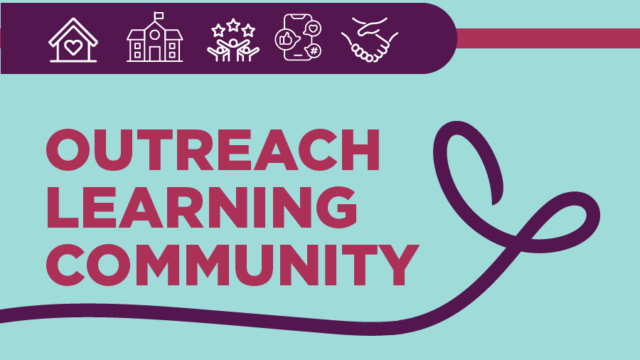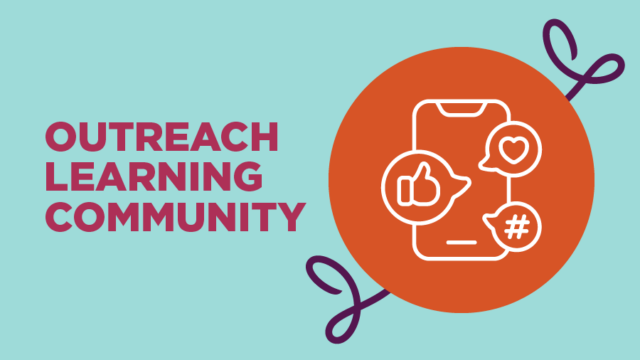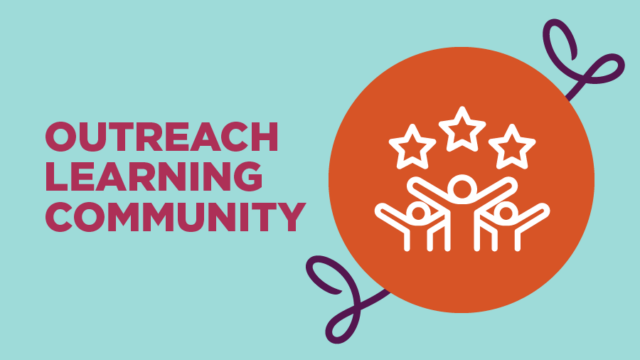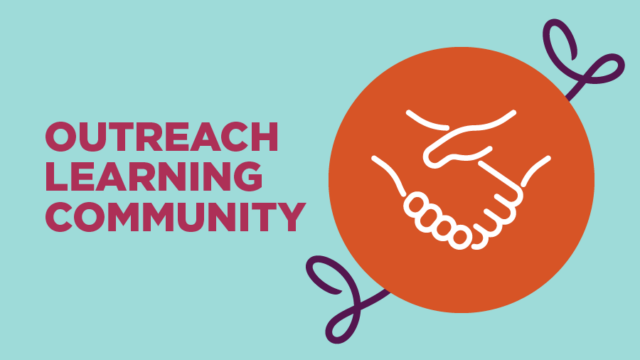



Key takeaways from the fifth of five sessions for social service professionals who want to improve outreach to kin caregivers
Experts: Benasha Shine-Berry, LMSW, is the Assistant Director at Project Healthy Grandparents at Georgia State University. Star Hagen is the Kinship Care Program Coordinator at the Port Gamble S’Klallam Tribe Kinship Parenting Program in Washington state.
Why This Topic Is Important: Kin caregivers connect with social service professionals at a time when they feel vulnerable and overwhelmed. The extent to which they access and benefit from services depends in large part on the relationship you build.
How to Build Trust
- Be intentional in your first conversation with families—listen to their history, their apprehension concerning service providers, and how difficult it has been for them to get services and support. Kin caregivers may feel that they need to be strong in order to cope and may appear as if they have it together. Benasha says this is especially true in communities of color. Listen, and stay receptive to what they are saying. A good opening line might be, “Tell me about your grandchildren.” To learn more you might ask, “How did you become responsible for your grandchildren?”
When possible, hold off on administrative items like completing an assessment scale or intake packet during your initial conversation. Focus first on relationship-building. - Wonder, listen actively and without judgement, and be curious. Attend to what is spoken and unspoken. To learn more, you can ask questions like: “How has becoming a caregiver changed your life?” “How have you adjusted to the changes?” “How do you keep all those balls in the air?” “Were you prepared to become a caregiver?” “Do you have a support system (friends, groups, respite)?”
- Tailor your response to families’ circumstances. Respond to families’ immediate concerns, for example, by helping with food or clothing. Work to fill the gaps. Actions like these help to build trust. Remember that every family is unique. In a home-visiting program like Benasha’s, staff members often bring resources to families, especially when they are new to the program. (“I’m going to pick up food for you and your family and bring it to you because I know how hard it is for you to get to the food pantry.”) Such personalized service is not sustainable, says Benasha, so it is important to be transparent with the families about if and how often you are able to pick up/deliver items. Benasha explains that the goal is to help clients “build the strengths and the means and the resources” so that when they complete the year-long program, they are able to navigate more easily on their own. In her kinship navigator program, Star looks for ways to make families’ lives easier, for example, by assisting a family with six kids by driving one of them to football practice.
- Say what you mean; mean what you say. Families may already be frustrated with systems unable to deliver what they need. Build trust by demonstrating that you can be trusted. If you promise to follow up, check in, or make an introduction, do it.
- Do not take a client’s frustration personally. Often, families have had many disappointments before they arrive at your door. Social service professionals may hear things like: “I’m so sick of y’all. Everybody is the same. No one listens to me. I mean, I’ve been telling the story over and over. What are you going to do that’s different?”
A lot of these caregivers are so overwhelmed. I speak from experience because there’s that time when you just had a rough day and you wish somebody would just call and say, ‘Hey, just called to see how you’re doing.’
Benasha Shine-Berry
- Continue to reach out to families who have disengaged. One learning community participant shares that sometimes kin caregivers will just stop participating in programming and will not respond to phone calls or emails. She says that she has mailed personal notes, along with her business card, to caregivers who have disappeared, just to let them know that she is still thinking of them and that she is available for them if they want to be in touch. She has also dropped useful items off at caregivers’ homes when in the area for another reason, just as another way to check in on them and let them know that she cares.
Benasha: “[When someone stops attending meetings,] I’m a big fan of dealing with uncomfortable situations directly, asking the grandparent, ‘What could we have done differently?’ ‘Was there something that was said?’ Or ‘Is there a reason why you’re not attending the group and what can we do to fix it?’ We make sure we are clear on the rules for the group and that we hold people accountable for the things that they say. To me, that’s being real and addressing an issue instead of sugarcoating it or covering it over.” - Value your clients’ time by vetting resources. Families with limited resources often spend considerable time arranging for childcare, finding transportation, and traveling to and from a location, and you want to do everything possible to make sure they’ll get what they need when they arrive. Before making a referral, learn all you can about how an organization can help the family:
- Is the phone number correct?
- Are there any income restrictions to be eligible for services?
- What is the application process like?
- How long will it take for the families to begin receiving services?
- How difficult is the enrollment or registration process?
- What forms and documents do they need to bring with them?
- What are the benefits to families of participating?
- Will participation in this program potentially impact or jeopardize access to other benefits/services?
Benasha: “Just giving families a name and a number of a service provider may not be helpful. If they had the time to do it, they would’ve done it. If they knew how to do it, they would’ve done it […]. Make it easy for them to access the resources. Families may need you to work with them to fill out an application or enter it into the computer.”
- Understand that approaches to building trust may vary in different communities and cultures.
THROUGH A TRIBAL LENS
Star: “The person [in my position] before me was a tribal elder. And so she really was able to pull in the families with that trust right away. So when I started, they were already trusting. And also I am from a very small community. I’m pretty much related to everyone in my community, so that’s helpful.”
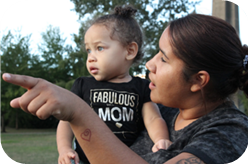
As Star points out above, previous trusting relationships can be a real asset, allowing new colleagues to build on the work of those that came before them. Conversely, previous negative encounters can require social service providers to demonstrate by their actions that this experience will be different.
Jennifer Odum, ONEgeneration: “We make an effort to hire staff who represent the cultures of our area. So, I am fortunate to have that, and it doesn’t mean that we automatically have to assign a case manager that is the same culture as a client, but it is nice that we have that option, especially when we’re talking trauma or we’re talking families who have not been treated well in the system or received what they needed. It is nice that we can have somebody available to talk to that they are more likely to trust.”
Noting her experience in a previous role, Benasha adds: “If you are working with an immigrant population, make sure that you’re clear on what their needs or past histories are, what their circumstances are, so you don’t miss anything that’s important. We hire[d] translators when needed.”
Hiring a diverse workforce—clinicians and kinship navigators from the community who share a common language, culture, and/or lived experience with clients—is helpful. But Benasha says connection is possible even when that is not the case:
What I find at the core of everything is respect—to be kind, considerate, thoughtful, and let families know that they are the drivers of their own situation and we are not there to tell them what to do. But we are there to support what they want to do […]. We have to present ourselves in a way that people don’t feel intimidated […].
Just meeting people where they are transcends culture and race—not making families feel like they’re “less than,” not making them feel like we are being condescending, asking questions when it comes to some misunderstanding that we may have in a way that’s not offensive: “Tell me what you mean by that.”
I don’t have to pretend like I know everything […]. I want to learn from families, too.
- Arrange activities that are just for fun. Learning community participants recommend holding events to get to know families in a different context: a retreat that includes music, food, dancing, bingo, cards, and a crafts project. Family camp outs, holiday skates, trampoline park events, and picnics. An event focusing on self-care. A trip to the beach.
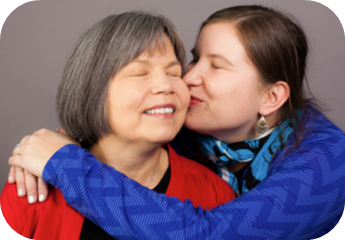
THROUGH A TRIBAL LENS
Star: “For our annual support group, we have an oyster burn. I gather the oysters, start the fire and cook them all, and we sit around and we talk. We don’t have an agenda for that one. It’s just open discussion so that then the caregivers can move around and talk to each other.”
- Celebrate small victories. Holly Handler, Kin Support Program – Haa Yaitx’u Saiani, says: “We’ve got these big ideas of what we want to accomplish in terms of overcoming trauma and healing and multi-generational wellness. But the biggest victory we’ve had this month is a grandma who’s taking care of a grandson that has size 14 triple-wide feet. We found her shoes, and she was just so happy.”
Another participant notes: “Anytime I hear a grandparent call and say, ‘We had a great day today’ that says a lot because I know I listened, I met their needs.”
Resources
- Read more about Georgia State University’s Project Healthy Grandparents Program in our Exemplary Program profile and on their website.
- See these resources for additional information about building trust in specific communities:
- African American Grandfamilies: Helping Children Thrive Through Connection to Family and Culture (Generations United)
- American Indian & Alaska Native Grandfamilies: Helping Children Thrive Through Connection to Family and Cultural Identity (Generations United)
- Black Kinship Families and Culturally Appropriate Engagement (Network video)
- Developing Rural Relatives As Parents Programming: Promising Practices A Collection Of Practice Wisdom From Across Rural America (University of Maine Center on Aging and The Brookdale Foundation Group)
- Intersection of Kinship Care and Culture: African & Caribbean Communities in America (Network webinar)
- Latino Grandfamilies: Helping Children Thrive Through Connection to Culture and Family (Generations United)
- Supporting Kinship Families of Unaccompanied Immigrant Children (Network tip sheet)
- Tribal Best Practices (National Indian Child Welfare Association)
